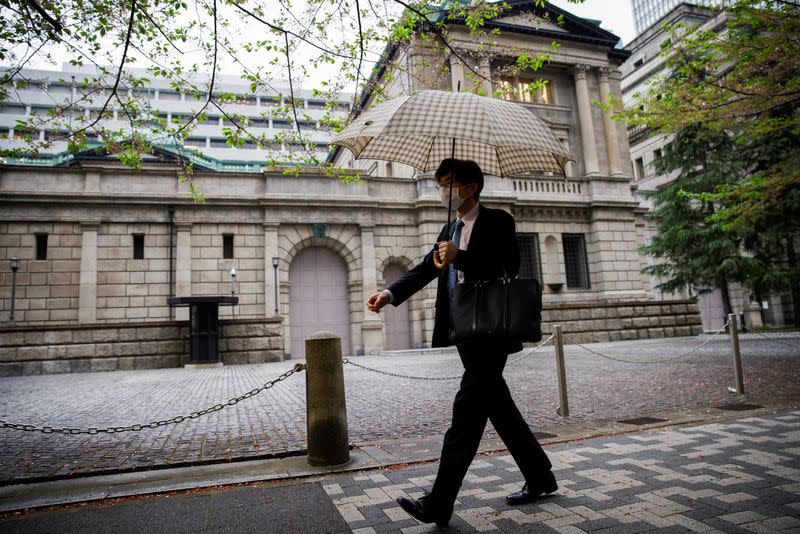BOJ policymaker calls for keeping ultra-easy policy, sets high bar on exit

By Leika Kihara
KOCHI, Japan (Reuters) -Bank of Japan policymaker Junko Nakagawa on Thursday stressed the need to maintain ultra-loose monetary policy and set a high hurdle for ending negative interest rates, suggesting the bank would be in no rush to phase out its massive stimulus programme.
An increasing number of Japanese companies were raising prices and wages, Nakagawa said, adding that there was a chance inflation could accelerate more than initially expected.
But there was also a risk inflation could slow once the pass-through of higher costs moderates, she said.
"There's an equal degree of upside and downside risks to the inflation outlook," as prices are swayed by various factors such as business sentiment and the strength of consumption, Nakagawa told a news conference.
As a result, it was hard to say when inflation could hit the bank's 2% inflation target in a sustainable manner, she said.
"We're seeing some positive developments in Japan's economy with signs of change in corporate price and wage-setting behaviour," Nakagawa told a speech before the news conference.
"But we're not at a stage where we can judge that Japan has achieved our price target in a stable, sustainable fashion."
The remarks put Nakagawa among those in the nine-member board who are more cautious about phasing out stimulus.
The BOJ has defined sustainable inflation as price rises driven not by rising raw material costs, but strong domestic demand accompanied by continued wage increases.
Inflation has exceeded the central bank's 2% target for more than a year, heightening market expectations the central bank could soon dismantle the radical stimulus programme adopted under previous Governor Haruhiko Kuroda.
BOJ officials have shown mixed signals on how soon and at what sequence the central bank could ditch yield curve control (YCC) - a policy that guides short-term interest rates at -0.1% and sets a 0% cap on the 10-year government bond yield.
"We're not at a stage where we can say clearly at what order, timing and interval it will happen," Nakagawa said on how the central bank could end YCC.
But she laid out in detail the conditions for ending negative rates.
"The economy must strengthen enough to weather headwinds, and keep recovering. Demand also needs to be firm and underpinned by households' conviction that their income will continue to increase," Nakagawa said.
"When we see many people share prospects that wages will keep rising, we may be able to exit (negative rates)," she added.
Japan's core inflation hit a four-decade high of 4.2% in January and remained above the BOJ's 2% target for 16 straight months in July, as more firms pass on higher raw material costs.
But Governor Kazuo Ueda has stressed the need to "patiently" maintain ultra-low interest rates to ensure Japan achieves 2% inflation driven by solid domestic demand and wage growth.
Nakagawa spoke at a news conference after meeting business leaders in the western Japanese city of Kochi.
(Reporting by Leika Kihara; Editing by Tom Hogue, Kim Coghill and Emelia Sithole-Matarise)

 Yahoo Finance
Yahoo Finance 